There are many reasons for studying Japanese, such as finding a job in Japan, entering a university or vocational school, passing the Japanese Language Proficiency Test, or learning practical conversation.
At Daiki Japanese Language Institute Tokyo, we offer courses that meet the needs of both overseas and domestic students.
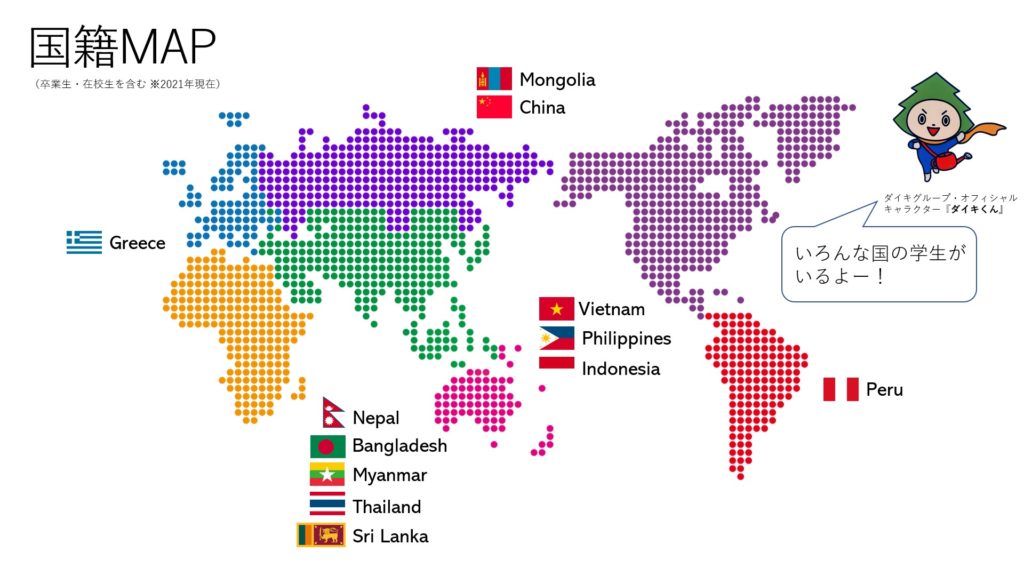
About Overseas Residents
For those currently living abroad, we offer two study-abroad courses, depending on the time of enrollment.
tudents entering in April will enroll in the “2-year course” and those entering in October will enroll in the “1-year and 6-month course”. Each course offers classes according to the level of Japanese language proficiency, and students are required to pass the Japanese Language Proficiency Test (JLPT) N1 or N2, and to pursue higher education or find employment after graduation. Experienced career guidance teachers will provide guidance and support for higher education and employment.
2-year course(entering in April)
The goal of the program is not only to acquire practical Japanese for daily life, but also to improve the Japanese language skills necessary for abmission Japanese universities and vocational schools. Students are expected to pass the EJU (Examination for Japanese University Admission for International Students) with a score of 200 or higher (excluding writing), and the JLPT (Japanese Language Proficiency Test) with a score of N1 or N2.
In addition, experienced career guidance teachers provide guidance and support for students who wish to enter higher education, such as individual career counseling and interview practice.
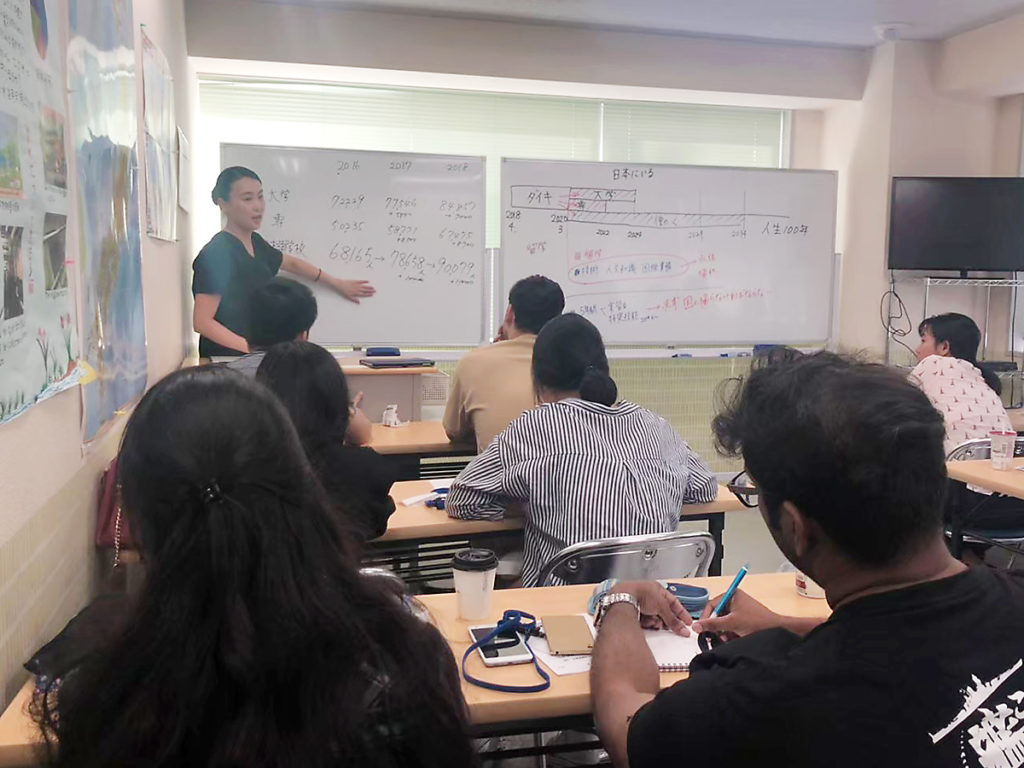
- 5 days a week (Mon-Fri)
- 4 sessions per day (45 minutes per session)
- Morning or Afternoon Class
- Max. 16 students per class
Commitment to School Events
Learning that emphasizes “thinking”
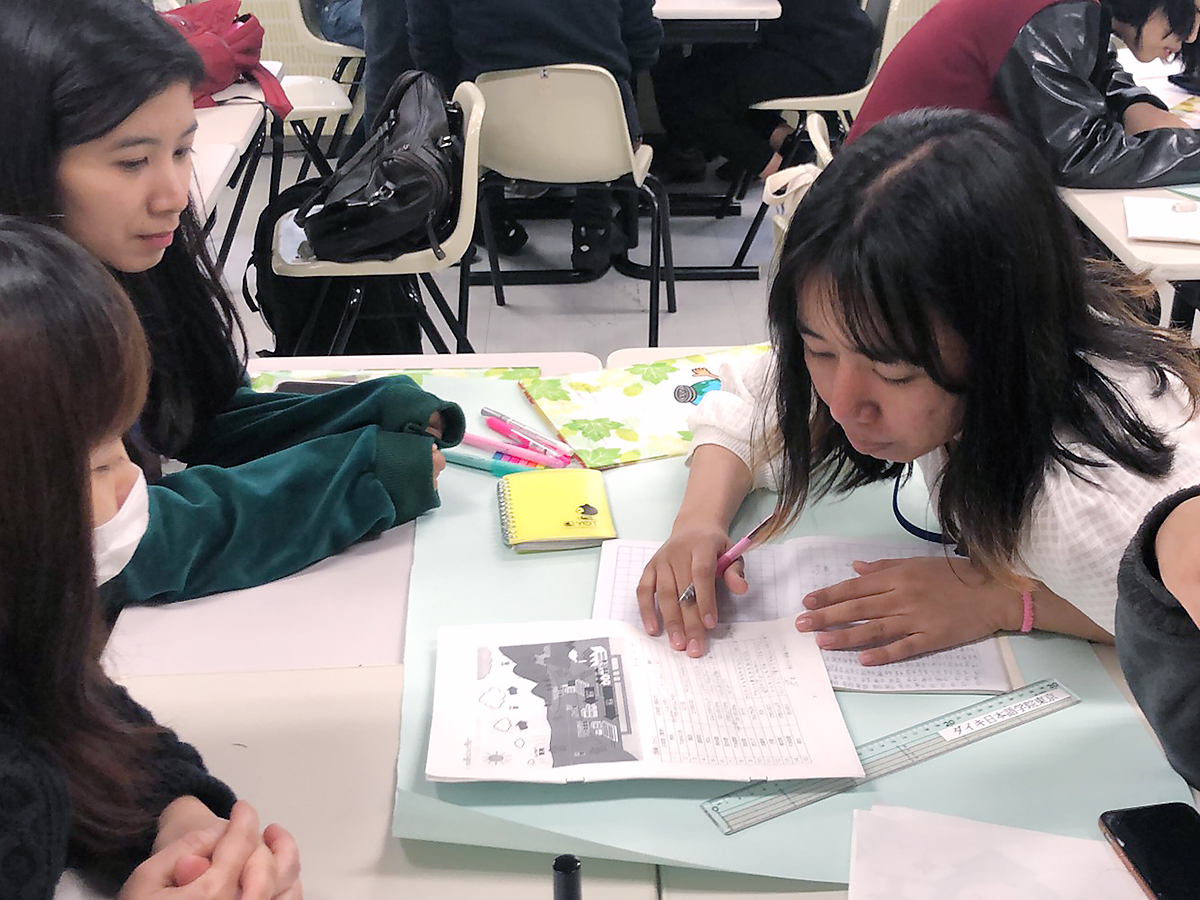
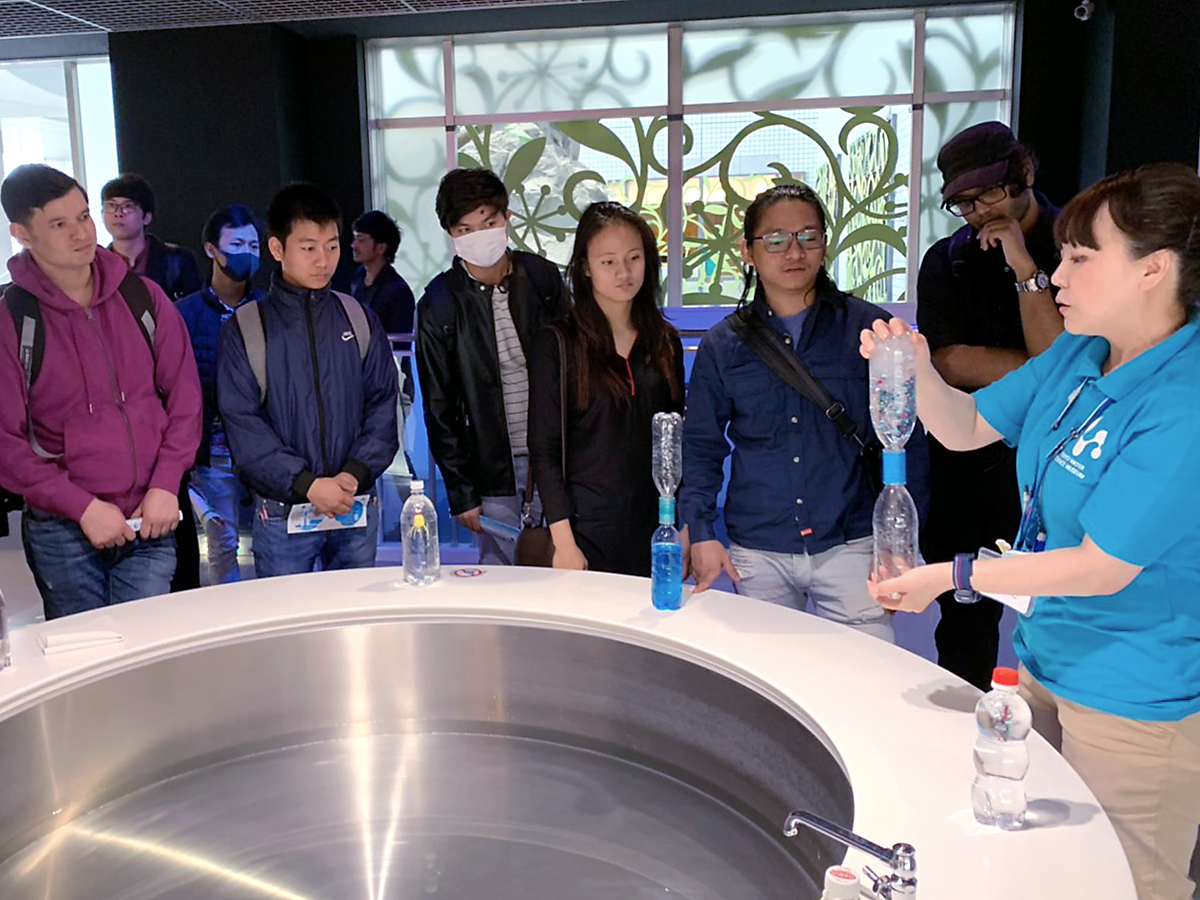
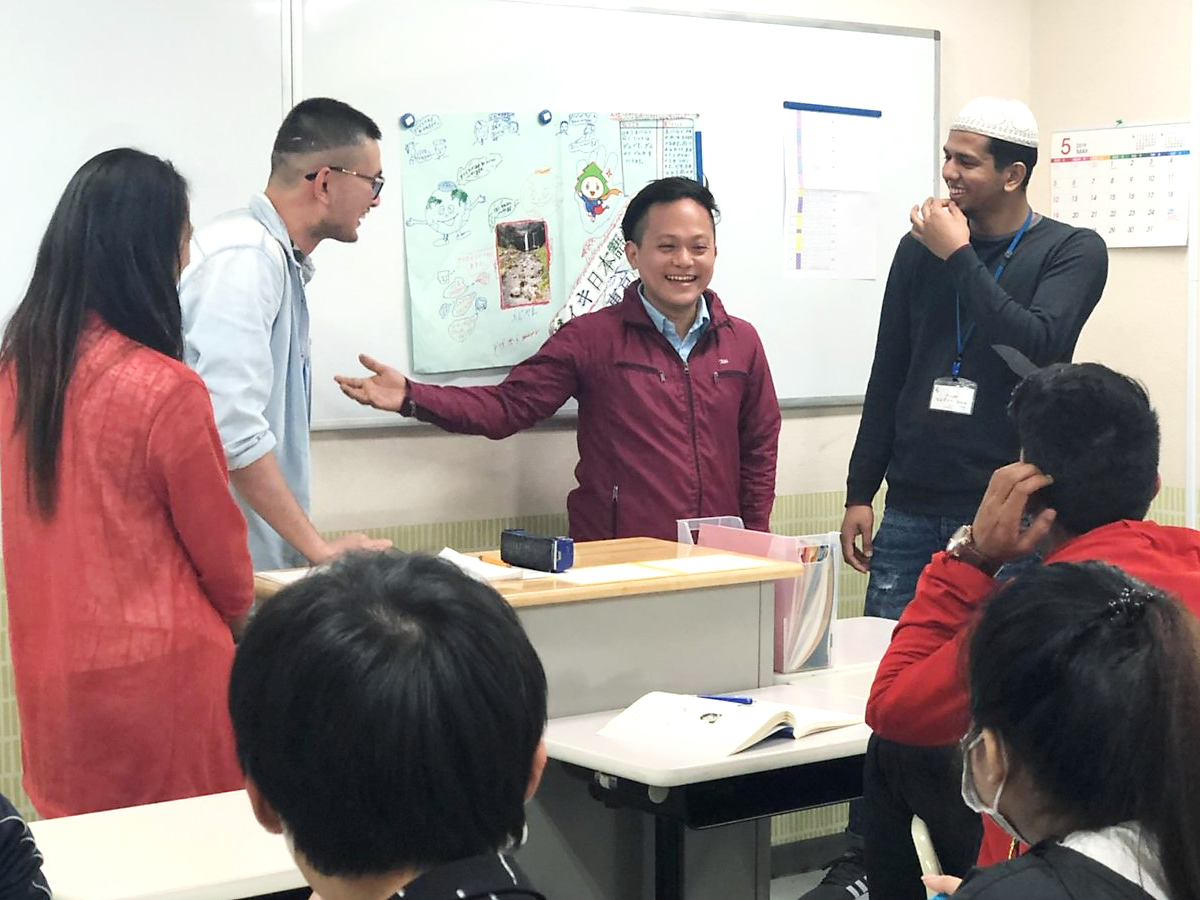
School events are learning opportunities that emphasize “thinking”. We plan activities that not only create memories, but also take into consideration the improvement of the four skills, active learning, and cross-cultural contact experiences.
For example, when visiting a sewerage system, we conduct a thorough pre-learning and post-learning program to deepen our knowledge and contemplate of Japanese affairs and social issues.
The program aims to cultivate academic skills through group work, fieldwork, interviews, presentations, and other activities within a single school event, so that students can make use of these skills in their interviews for entrance examinations and in their student life after entering higher education. Through these events, we nurture the ability to think independently so that students can make it a habit to think in Japanese (input), communicate their opinions (output), become interested in environmental issues and current affairs (broaden their horizons), and reconsider their home countries (become aware of their international citizenship).
【Ex】Tour of Sewerage Facility〈東京都虹の下水道館〉
- Prior learning
- ・Think about the water supply situation in your home country.
・Guess how Japan’s water purification technology and sewage system work.
・Take a quiz on environmental issues.
・Learn vocabulary related to waterworks
- Day of visit
- ・Take notes on what you have heard and learned.
・Ask questions that you have wondered about in your preliminary study.
・Summarize your thoughts and impressions.
- Post-graduation
- ・Investigate the water supply situation of the Japanese people.
・The group will consider how to conduct the survey.
・The group will make a poster and present it to the class.
1-year and 6-month course(entering in October)
Our goal is to provide comprehensive Japanese language training to meet the diverse needs of students who want to improve their conversational skills, learn about Japanese culture, learn the Japanese necessary for daily life, work in Japan, or take the JLPT.
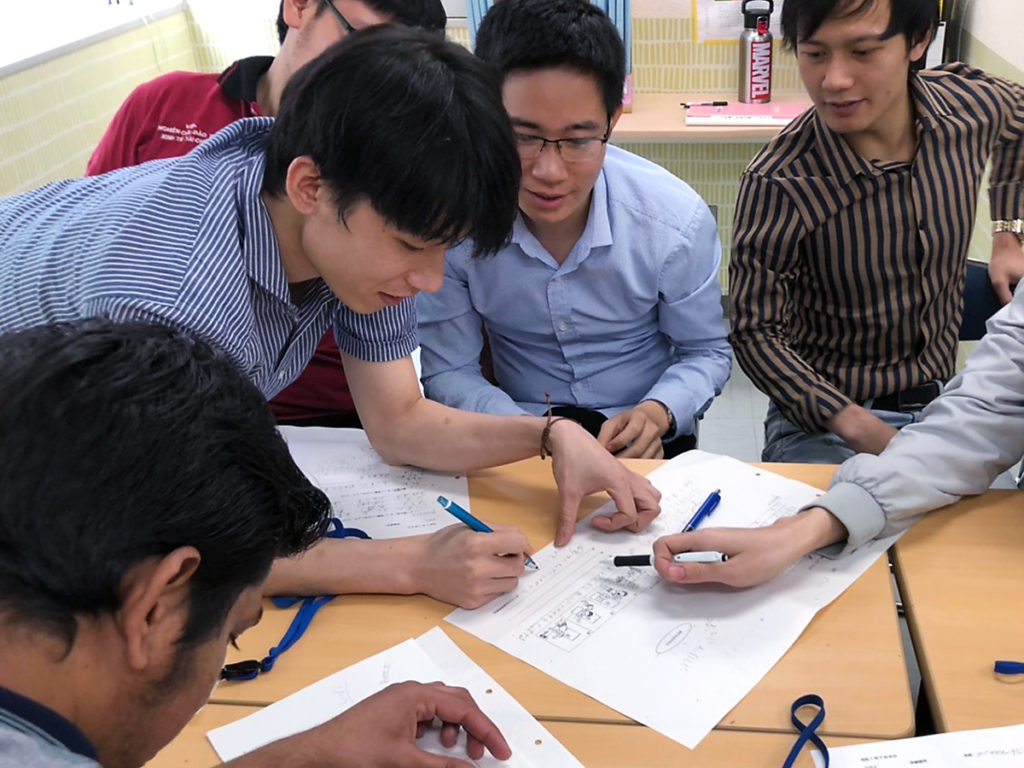
- 5 days a week (Mon-Fri)
- 4 sessions per day (45 minutes per session)
- Morning or Afternoon Class
- Max. 16 students per class
Commitment to School Events
Learning with an Emphasis on “Knowing”

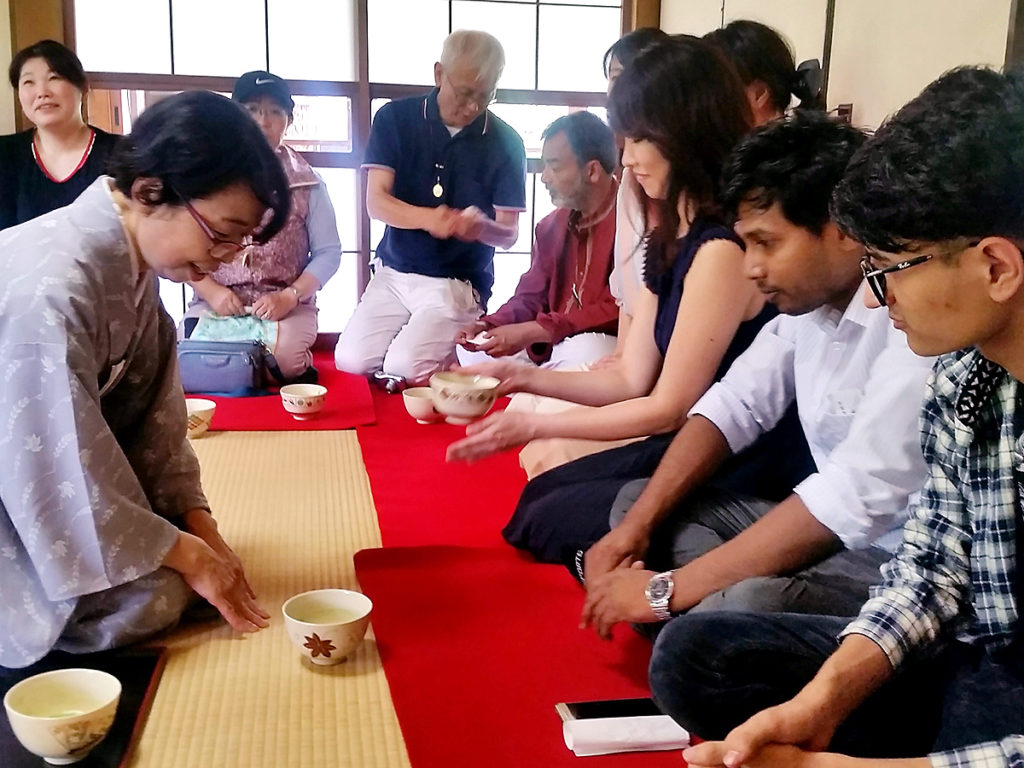
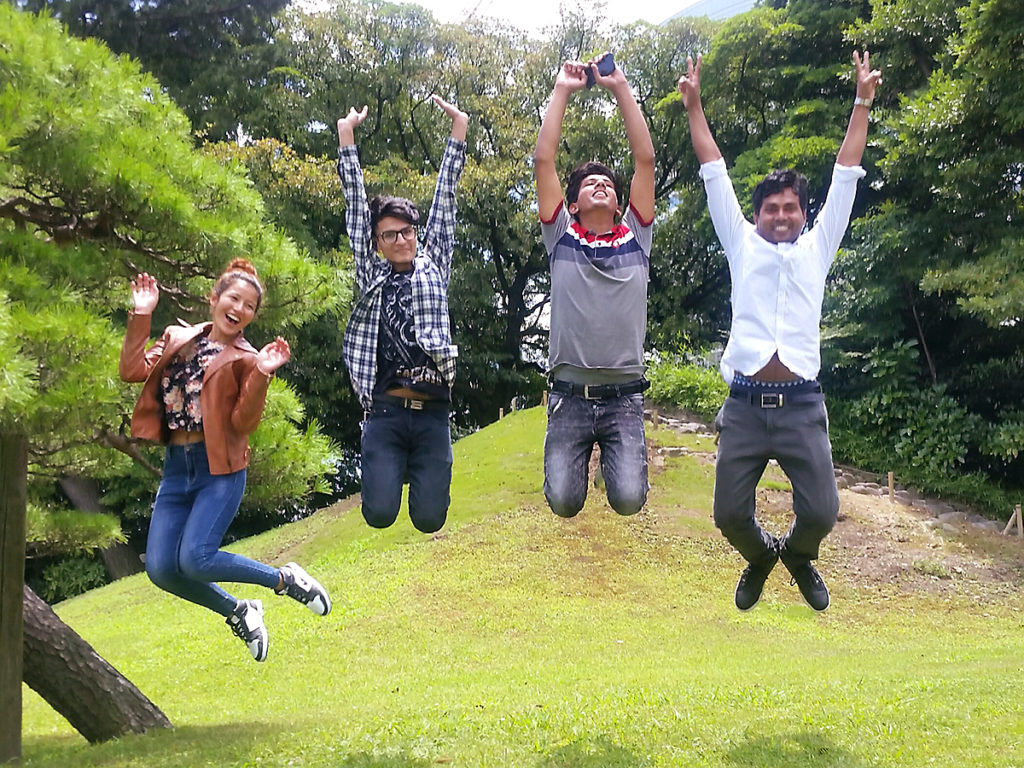
The event, which aims to “learn about Japan,” will deepen students’ knowledge about Japan through all kinds of experiences, including a tour of the Coca-Cola factory, a disaster prevention museum, a tea ceremony room in the Hama Rikyu Gardens, volunteer activities, and exchange events with local high schools. Understanding Japan helps students gain a broader perspective on their own culture. By learning about different cultures and interacting with people, students are likely to be surprised, moved, or feel a sense of discomfort, which can significantly impact their thinking. This experience is very important, and if you dig deeper into why you feel the way you do, you will always find a reason. And when you understand the reason, you can say, “I understand why the Japanese acted like that.”, “I see how Japanese traditions differ from those in own culture.” This leads to cross-cultural understanding. Through the accumulation of these experiences, we can deepen our insight, become more tolerant of others, and become more well-rounded person.
【Ex】Exchange meetings with local high schools
- Advance preparations
- ※Preparation for “Introducing your country to Japanese high school students
・To learn about one’s own country from different angles by looking at guidebooks sold in Japan for each country (the countries of the international students).
・Think about the differences between what international students think is good about their own country and what Japanese people think is good about their own country.
・Think about what you would like to recommend that is not in the guidebooks, and what you would like to add to the guidebooks that are in the guidebooks, but you would like to add to them.
- On the day of the exchange
- ・Students will make a poster presentation about their own country (food, tourist attractions, history, fun, etc.).
・Discussions will be held in joint groups of international students and high school students.
- Review
- ・Share questions raised by the high school students and find ways to improve the communication.
・Write a report on this activity. Send a message card to the high schools that participated in the exchange event.
Target Level
About Domestic Residents ( of Japan )
This course is designed for business people living in Japan, their families, and Japanese spouses to comprehensively learn the Japanese language necessary for daily life.
We offer several courses ranging from daily conversation to Japanese required for business, depending on your needs.
We also offer online lessons via ZOOM, so please feel free to contact us for more information.
Please contact us if you reside in Japan and wish to follow the same Japanese language education curriculum as the Study Abroad Course.
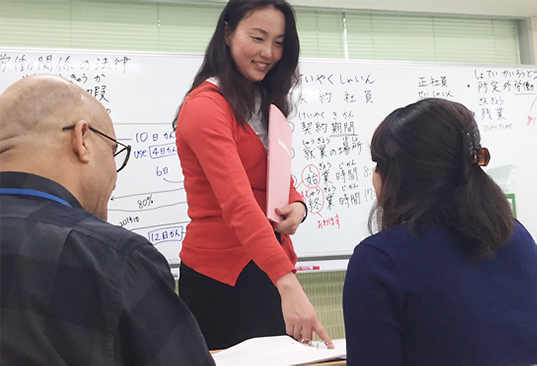
- Conversation Course
- Business Japanese Course
- Exam preparation Course (JLPT, BJT, etc.)
- Short-term intensive Course
- Private/Semi-Private Lesson
- Special Class (e.g. Kanji class)
- Evening Class
- Dispatch of instructors for Lesson (for companies and schools)
- Online Lesson
